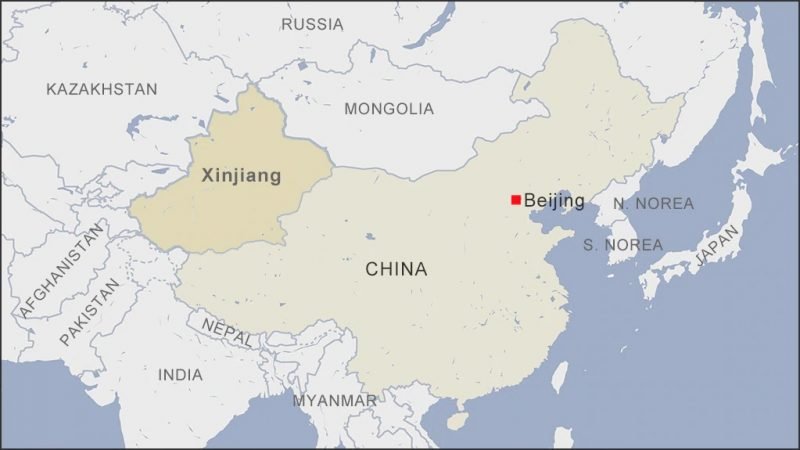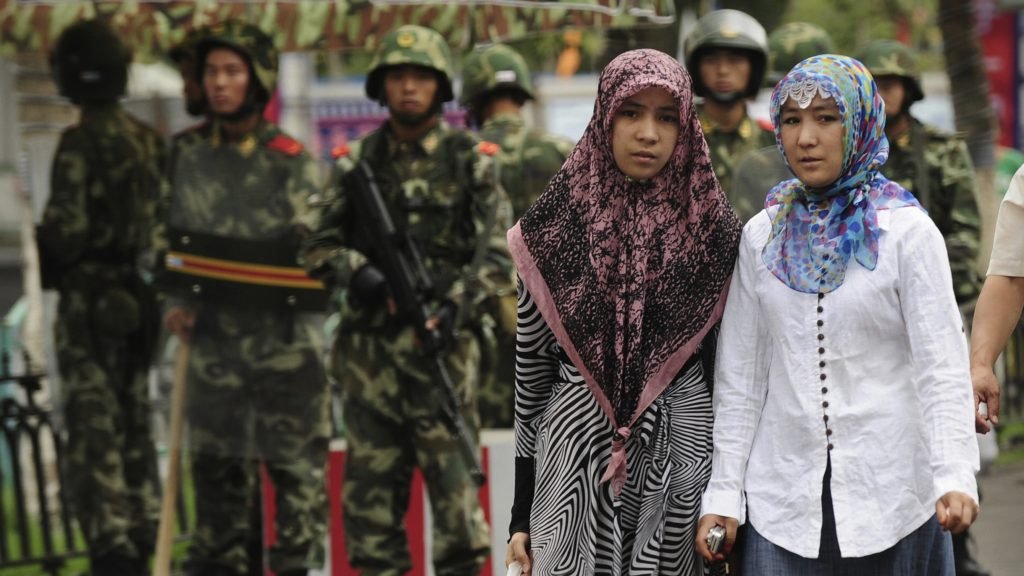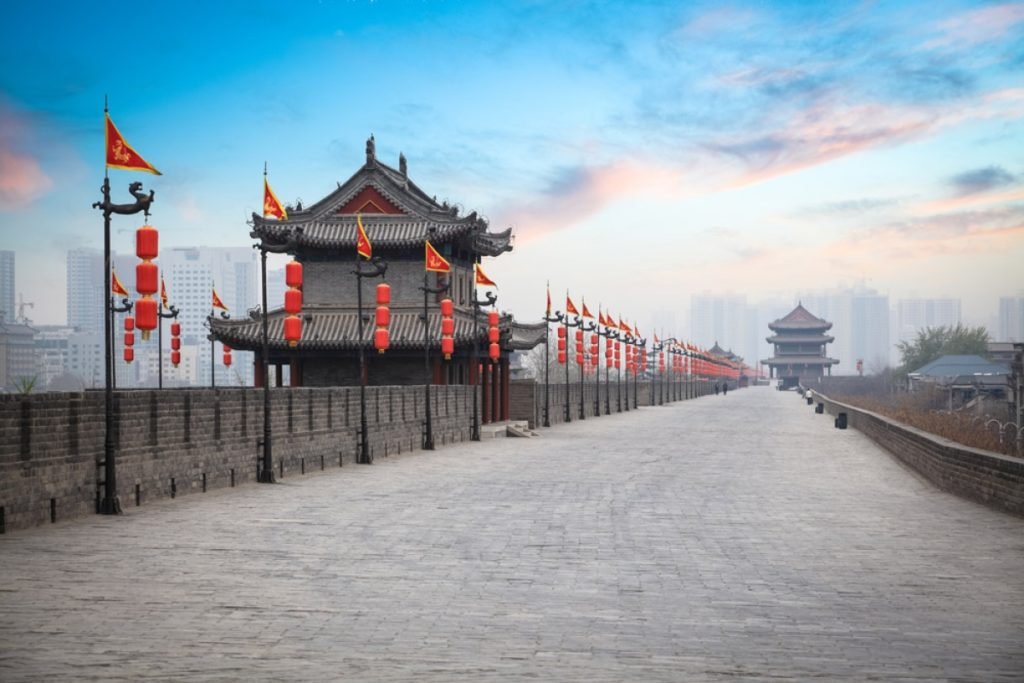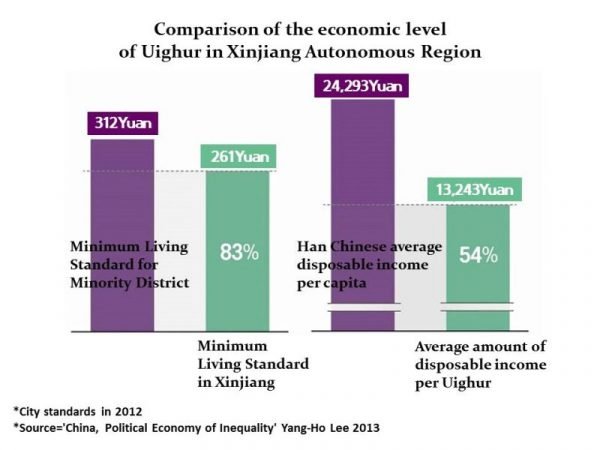Xi Jinping Authority’s “Chinese dream”

But isn’t it a “Han Chinese dream” only for the Han Chinese?
The Uyghurs, a minority Muslim in China, are emerging as a new trigger of the US-China conflict. Recently, China put four US lawmakers and officials on the list of sanctions, saying the United States is intervening with the Uighur issue. Prior to this, the U.S. government banned the entrance of four high-ranking Communist Party members, including President Xi Jinping’s top aide Chen Chuan and Xinjiang Uighur Autonomous District Secretary, into the U.S., and froze their assets in the U.S. due to the Chinese government’s oppression of human rights among Uighurs.

Who are the Uyghurs?
The Uyghurs were originally Turkic nomads who lived widely in Central Asia. Their homeland, Xinjiang, was subjugated to China by the Qing Dynasty in the 18th century, and over 12 million Uighurs lived in their own culture, languages, and customs. Because of this, the Uyghurs show very different patterns from China, ethnically, culturally, and religiously.
Yet, after a large influx of Chinese Han into the Xinjiang Autonomous Region, the Uyghurs’ unique economy and lifestyle began to be endangered, and the Uyghurs’ movement for separation and independence began gradually. Particularly, over 29 people were killed in the attacks of Uighur Islamic fundamentalists at the Kunming Station in 2014, the Chinese government has implemented strong surveillance and control policies in the Uighur Autonomous Region in Xinjiang. According to World Human Rights Organizations, more than 1 million Uyghurs in Xinjiang are detained in camps without trial. At that place is even shocking testimony that the Chinese public security authorities are forcing contraception on Uyghur women in prisons. This claim is actually supported by the decline in the fertility rate of Uighur women in China. Studies have shown that fertility rates in many Uyghur regions have fallen by 60% in three years.

It is not known exactly how many Uyghurs have experienced reeducation camps, simply it is estimated to be approximately 1 million. This unprecedented surveillance system is driving Muslim Uighurs in the Xinjiang district. They are not punished for what they have done, but for what they might have caused. The Office of the United Nations High Commissioner for Human Rights (OHCHR) officially called for access to the Xinjiang Uyghur area but was denied by the Chinese side. Along the Chinese side, these places were introduced as institutions for “patriotic education” and as vocational training centers for “social integration” of minorities. In truth, language courses, patriotic education, self-criticism education, and interrogations are conducted for those who do not speak standard Chinese well. Withal, the testimony of those who fled from China later on being released from reeducation camps to foreign media is different from what the Chinese side said. They delineated the conditions of detention as very harsh, as well as strong pressures and acts of mental and physical torture.
It is reported that the Chinese authorities have installed a police post every 200m in major cities in Xinjiang, such as Urumqi, and have set up the world’s finest surveillance network, such as systematizing constant supervision using drones, to monitor the Uyghur citizens every step of the way. The Uighur region in Xinjiang can be depicted as the largest prison in existence on Earth.

The Chinese side argues that China’s Xinjiang policy is successful because the violent acts in Xinjiang have declined significantly. Even so, the international community, led by the United States, continues to point out such human rights abuses by China and urge improvement. From Hong Kong, Tibet, and Xinjiang Uyghur, the global community is watching the Chinese government’s sequential suppression of human rights. On the 25th, the Dutch parliament passed a resolution stating that “China’s treatment of the Uighurs is genocide.” Although not binding, the resolution formed the Netherlands the first European Union (EU) country to define China’s repression of the Uighurs as ‘genocide’. The resolution condemned the violation of the UN’s Genocide Convention, which entered into force in 1948, saying, “Genocide against the Uyghurs, a minority ethnic group, is taking place in China.” Earlier, the Canadian Parliament passed a resolution on the 22nd that China would commit genocide against the Uighurs. The resolution urged the Canadian government to request the International Olympic Committee (IOC) to change the venue for the Beijing Winter Olympics if the massacre goes on. On the same day, the British also criticized “Xinjiang’s situation is out of the way.” British Foreign Minister Dominic Raab strongly denounced the UN Human Rights Council, saying, “In China’s Xinjiang Autonomous Region, torture, forced labour, and abortion against Muslim Uighurs are being committed on an ‘industrial scale’.” He also pressed China to conduct a field study in Xinjiang, telling, “I strongly claim urgent and unrestricted access.”
The modern silk road dreams of reviving the glory of the past, but the reality is ···?
President Xi Jinping seemed to have succeeded in bringing the world of his dreams by proposing the Silk Road, which had existed since the 2nd century BC. Additionally, Xi’s grand “Chinese dream” seemed to be realized through China’s “Belt Road Initiative,” which connects the land and sea Silk Roads. China, which has already developed the eastern and coastal areas of the mainland as export-specialized production zones, has turned its attention to the rest of the western deserts. Besides, China attempted to re-establish relations with China’s western countries, specifically Central Asia, Pakistan, Afghanistan, and Turkey, beyond the rebirth of Xinjiang. Xinjiang is also an indispensable area for the Chinese authorities for China’s “establishing energy security” policy. Resources buried in the Xinjiang account for nearly 34% of China’s total land, energy, including coal as well as China’s three largest oil fields. In 2017, the world’s largest oil field of 1 billion tons was discovered here. As well, Xinjiang is the base of China’s giant projects, most of which pass through this region. Xinjiang is also where most of the oil pipelines to China gather.

[Image Resources: Business Insider FRANCE, 23/02/2019]
Xinjiang Uighur Autonomous Region, which was once called “West Station” because it was located on the western edge of China. In the primaeval days of China’s western development project centred on the Uighur Autonomous Region, there was an expectation that policies would lead to economic growth and prosperity, which would slow the trend of nationalism and independence movements in Xinjiang. If so, what about reality? Economically, Xinjiang is lagging behind other areas of China. Nowadays, Tibet is the poorest of China’s 31 administrative districts, and Xinjiang Uighur is also rated in the lower ranks. The Chinese authorities are aggressively implementing a policy of shifting the Han Chinese to all parts of China. In the Xinjiang region, too, in the name of the development of the region, China relocated large numbers of Chinese Han and took the political and economic leadership of the region. In Tibet, the situation is not very different. Although the Chinese authorities have tried to alleviate this problem after the reform and opening up, even in 2012, decades later, the average personal income of the Uighurs was found to be only around 50% of the Han Chinese. After the initiation of the Beijing-Tibet railway, Lhasa, the capital of the Tibet Autonomous Region, also attracted a heavy number of Chinese Han. This is considered to cause the effect of changing Lhasa’s population distribution. While Xinjiang and Tibet occupy about 30% of China’s territory, it is probable that the population distribution within the autonomous region will change due to the low autonomous population density. This also served as the background for the increasing influence of the Han Chinese in the area. Consequently, autonomous residents in Xinjiang and Tibet are forced to react more intensely to the inflow of Han Chinese. Notably, the Xinjiang Uyghur region is as well the source of the most important ‘rare earth’ of the economic war. Therefore, it is analyzed that the Chinese government agencies cannot give up their influence on Xinjiang. Thusly, foreign media are paying more attention to Xinjiang Uyghur than Tibet.

Ostensibly, chronic anxiety in Xinjiang seems to have been triggered by the Uighurs’ radical need for separation and independence. Nonetheless, this would be more correct in terms of the predicted result generated by the mass outflow of the Han Chinese and a by-product of the forced assimilation policy. Later on the drift of the Han Chinese, the most prominent cultural heterogeneity, the threatened Uighur identity, and the conflict with the Han Chinese are the direct lead.
China seems to have no intention of humanizing the Xinjiang district. The Chinese regime still holds on to the Xinjiang area under close monitoring and tightly controls external access. Amid the growing criticism of the international community, China has latterly emerged as a “public enemy” of Islam with 1.8 billion believers worldwide. Criticism is mounting even in countries like Pakistan, which have endured the economic relationship between power and no power. In the world Islamic community, it is even heard that “China is attempting to exterminate the Uighur people.” Then, what will happen to the conflict between the Islamic world and China, which was lit up by the Uighur camp case? It is highly possible that China will temporarily put an end to the controversy by advocating economic cooperation. Indeed, among countries with high economic dependence on China, countries such as Egypt have avoided commenting on Uyghurs, even though they are Islamic countries with 90% of the population being Muslim. Turkey, which is considered ethnically identical to the Uighurs, and is regarded as brothers and friends at the civic level, also shows no particular movement. Turkey appeared to be actively trying to resolve the Xinjiang Autonomous Region after the signing of the protest in 2019 but has remained silent ever since.
Presently, international denunciation is growing close to China’s treatment of Uighur Muslim, simply no state has yet called for action beyond critical remarks. Is the gap between reality and ideals consequently enormous? It is the coarse actuality of real politics that international justice applies only when the state accepts it. It would be very arduous to practice the skills for international justice against China, the second-largest economy in the world. China is by no means a weak opponent. It is terribly clever and is already exerting too gravely influence all over the Earth.
Even though it cannot completely dismiss the accusations of the international society, China will never be capable to yield to Xinjiang or Tibet. China has no doubt that these regions are part of its territory. The worldwide public’s support for issues in the region is regarded by the Chinese authorities as a serious violation of its sovereignty.
Hitherto, China has realized the necessity to improve its image in the global community. For this reason, international broadcasting is started with the launch of a think tank, and Confucius Institutes are being established and expanded around the world. Addedly, it is going to strengthen and solidify soft power, such as buying a prestigious university in the UK. China insists that what it wants is not to dominate the world, just to protect its own interests and to preserve its territory. China carries on to argue that it is enough to become a world-class power state recognized as China itself. Having stated that, the recent aggressive actions of China seem to be contrary to these arguments. China is now trying to carry out its will and thoughts toward the world based on its explosive economic growth. Subsequently, China does not hesitate to exercise force if necessary.
Modern China is a product of an empire. This is regarded as their sphere of influence even beyond the up-to-date borders, and thus, it can be seen through China’s unwillingness to distort history as well as conflict with neighboring countries. The losses suffered in this process are of course sensitive to the national level. All of this is not surprising at all. Although Chinese authorities tend not to tolerate resistance against the situation in Tibet, Xinjiang, and Inner Mongolia, China still state that they have no imperial ambitions.
Human rights are universal values that must be respected everywhere, regardless of political system or nation. Withal, it is nearly impossible for human rights issues to be respected as such in the international order. Ultimately, resolving human rights issues will be made according to political decisions, and in order to achieve that decision, it will have to be negotiated through a diplomatic framework with complex interests.
Is it too delusional to see the fragments of the horrific scars that humanity suffered half a century ago in the systematic and despotic repression of the Chinese authorities?


















